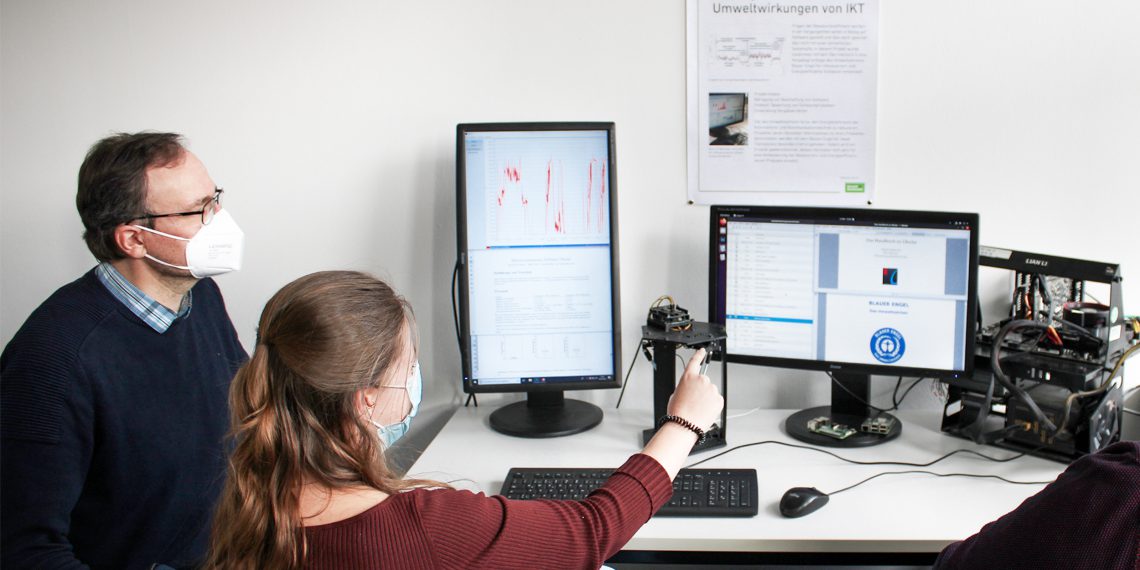To help consumers find environmentally friendly and energy-saving products, the well-known Blue Angel eco-label now also recognizes products in the field of information technology (IT). For the first time, a software product, the document viewer “Okular”, has now also been certified with the Blue Angel. The underlying criteria of this “Blue Angel for Software” were significantly co-developed by researchers of the Environmental Campus Birkenfeld of Trier University.
Cars, buildings, and even industrial operations require energy and thus, as is well known, contribute to the greenhouse effect when this energy is provided by fossil fuels. Less well known is that digitization also has an “ecological footprint.” Streaming movies, the production of smartphones, communication via messenger — all of this also requires energy and raw materials. To help consumers find environmentally friendly and energy-saving products, the well-known Blue Angel eco-label now also recognizes products in the field of information technology (IT). For the first time, a software product, the document viewer “Okular”, has now also been certified with the Blue Angel. The underlying criteria of this “Blue Angel for Software” were significantly co-developed by researchers of the Environmental Campus Birkenfeld of Trier University.
Now the team led by Prof. Dr. Stefan Naumann, head of the “Environmental and Sustainability Informatics” working group at the Institute for Software Systems, has also provided practical support for the application process for the eyepiece software in the form of measurements and advice. This was done as part of a cooperation of student projects with the open source community KDE, the developers of the document viewer.
“We are very pleased to receive our first award. Through the students’ measurements and analyses along the award criteria and the good cooperation with the community, KDE was able to successfully apply for the eco-label.”
- Prof. Dr. Stefan Naumann
At the same time, the students of the computer science programs on campus learn a lot about software development, efficiency of programs and their use.
Since KDE’s product range includes many more programs, the “KDE-Eco” project will develop a platform that will help many more open software products to be measured and certified. The computer science research at the Environmental Campus wants to continue and expand this cooperation. Such projects are directly integrated into the Environmental and Business Informatics or Applied Informatics and Artificial Intelligence degree programs. “This means that even first-year students can work directly on such projects,” says Naumann, who is also head of the Department of Computer Science at the Environmental Campus Birkenfeld.

















